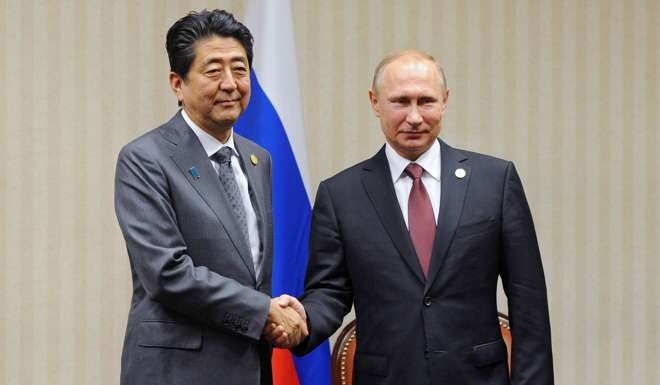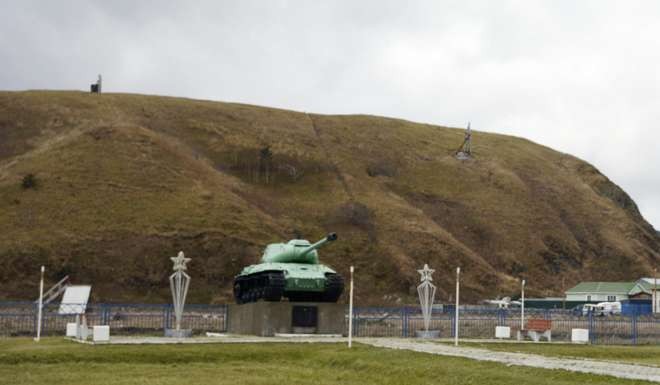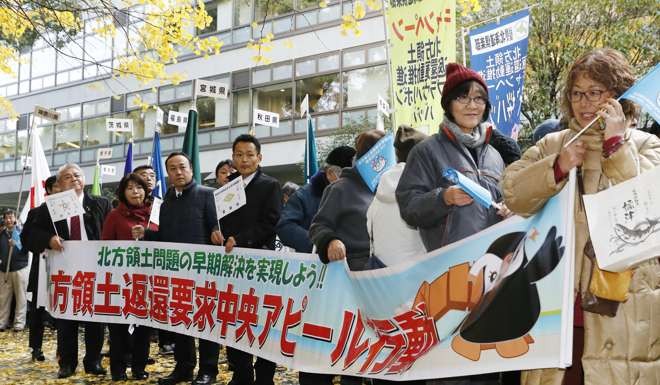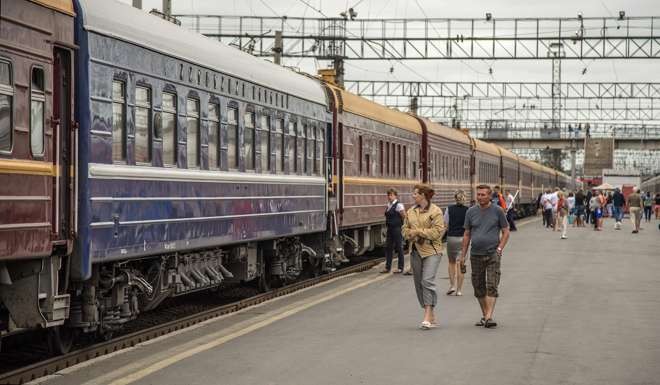
Could Tokyo-Moscow rail link proposal be revived when Putin visits Japan this month?

A meeting in Japan later in December between Prime Minister Shinzo Abe and Russian President Vladimir Putin has revived suggestions that the two nations could build a rail link that would link Tokyo with Moscow.
Similar proposals have been aired in the past but have never progressed, largely due to the anticipated cost of thousands of kilometres of tracks as well as bridges and undersea tunnels. Geopolitical tensions have also been a factor, particularly over the sovereignty of islands off northern Japan that were occupied by Soviet forces in 1945 and which Tokyo still claims sovereignty over.
In recent months, however, there has been a distinct thawing in relations between the two governments as Japan seeks to get access to development projects in the Russian Far East, notably to obtain energy resources.
Abe has also not entirely given up hope that he might convince his Russian counterpart to return at least some of the territory that Japan lost in 1945.
According to a report in the Shuksan Jitsuwa news magazine, Vladimir Yakunin, the former president of Russian Railways and a close advisor to Putin, put the proposal for a new rail link to Abe during talks in Tokyo last year.



As part of this initial stage, a bridge nearly 8 km long would be constructed over the Mamiya Strait, between mainland Russia and Sakhalin.
From Nysh, the track would continue to the most southerly point of Sakhalin, close to the town of Korsakov, where it would enter a tunnel beneath the 40-km stretch of water known as the Soya Strait that separates Russia from Japan. Emerging close to the town of Wakkanai in Hokkaido, the track would then merge with the Japanese rail system and eventually connect with the bullet train lines that link northern Japan with Tokyo.
The Shukan Jitsuwa report suggests that the new track would reduce the time it takes for freight from the Far East to reach Europe from 35 days at present to 25 days, while it would also serve as an “energy bridge” bringing liquified natural gas into Japan.
Analysts, however, are more sceptical of the value of a project that would cost trillions of yen.
“From Tokyo to Moscow is too far,” said Yoshitsugu Hayashi, president of the World Conference on Transport Research Society and a professor of transportation policy and systems at Chubu University.
“Even if they installed a maglev track, that train will only go at 500 kph and that is about half the speed of an aircraft,” he pointed out.

“And a conventional train would rarely go above 150 kph on Russian tracks, meaning the journey would be extremely slow.”
Another technical problem that would inevitably slow the route down would be the different track gauges that are used in Russia and Japan.
“Also, the cost would be huge,” Professor Hayashi said. “There has been talk of an under-sea rail link between southern Japan and the Korean Peninsula for a long time, but that project has never progressed because of the costs involved.
“I think a railway to Moscow is even less feasible.”